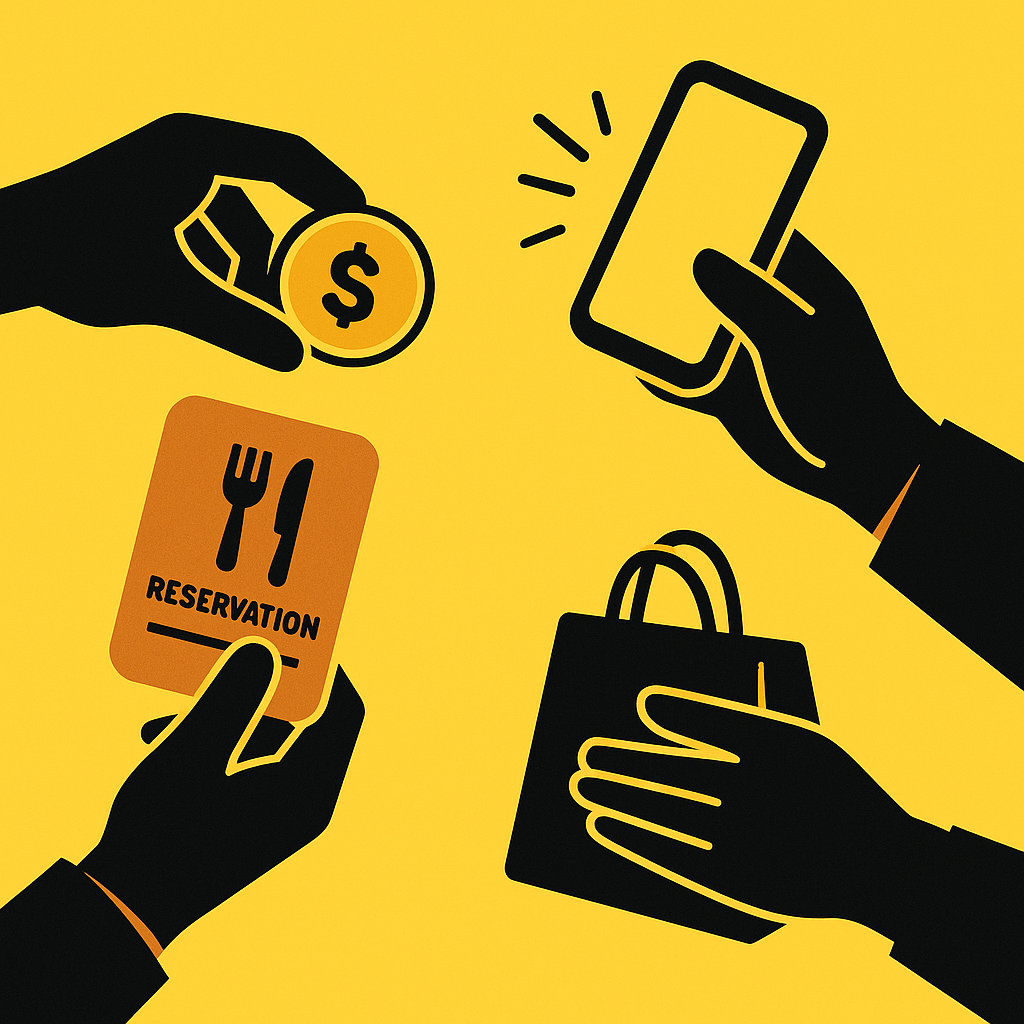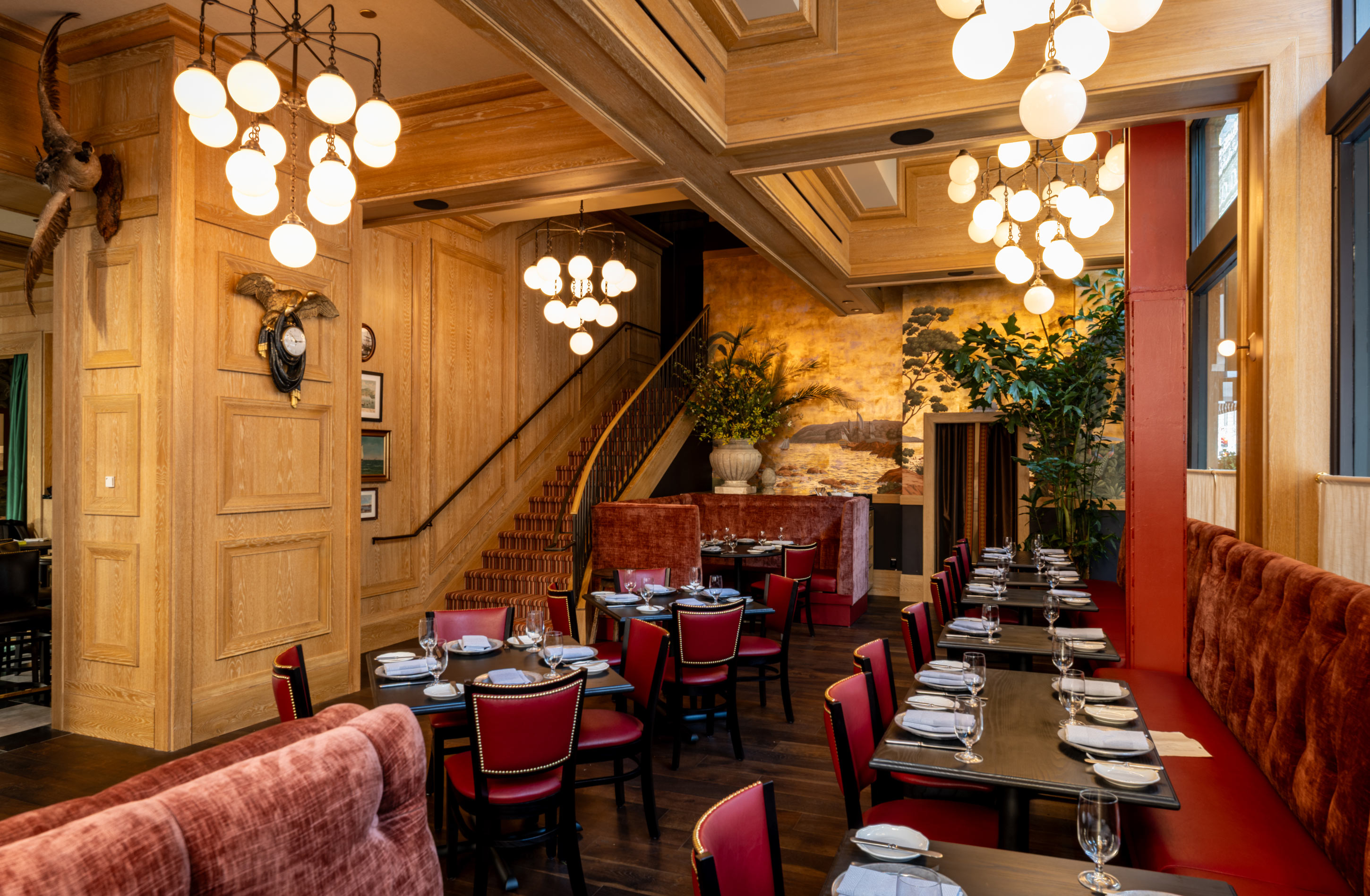
Restaurant operators face a critical decision in 2025: hire another full-time host or invest in AI-powered customer experience technology. With labor costs climbing and staffing challenges persisting across the industry, the math has shifted dramatically in favor of automation. (Hostie AI)
This comprehensive ROI analysis compares Hostie AI's $199/month pricing against the true cost of a full-time host earning $18.75/hour plus 22% benefits—a realistic wage model for quality hospitality talent in today's market. (Hostie AI) The results reveal 59-67% cost savings over five years with a payback period under six weeks, making this one of the fastest-returning investments in restaurant technology.
We'll walk through a detailed cash-flow table, examine the methodology behind these calculations, and provide a framework you can adapt to your own restaurant's covers and labor assumptions. (Hostie AI) Whether you're running a bustling 80-seat establishment or a smaller neighborhood spot, understanding these numbers will help you make an informed decision about your customer experience strategy.
Before diving into the comparison, let's establish the real financial impact of hiring a full-time host. The $18.75 hourly wage represents competitive compensation for experienced hospitality professionals who can handle reservations, manage wait times, and provide the warm welcome that defines great restaurants. (The Role of AI in Restaurants)
| Cost Component | Calculation | Annual Amount |
|---|---|---|
| Base Salary | $18.75/hr × 40 hrs/week × 52 weeks | $39,000 |
| Benefits (22%) | $39,000 × 0.22 | $8,580 |
| Total Annual Cost | Base + Benefits | $47,580 |
The 22% benefits load factor includes health insurance contributions, payroll taxes, workers' compensation, and paid time off—standard costs that many operators underestimate when budgeting for new hires. (Smart Service Revolution) This doesn't account for recruitment costs, training time, or the inevitable turnover that plagues the hospitality industry.
Beyond the direct financial impact, full-time hosts present operational complexities that AI solutions eliminate entirely. Sick days, vacation coverage, and shift scheduling require constant management attention. (Hostie AI) Training new hosts takes weeks, during which service quality often suffers as they learn your reservation system, menu details, and customer preferences.
The restaurant industry's high turnover rate—often exceeding 75% annually—means you're likely to repeat this hiring and training cycle multiple times. (ChatGPT for restaurants) Each transition period creates service gaps that can frustrate guests and impact revenue.
Hostie AI represents a fundamentally different approach to customer experience management. (Hostie AI) Rather than adding another employee to your payroll, you're investing in technology that works 24/7, never calls in sick, and continuously improves its performance through machine learning.
Hostie's AI-powered platform handles the complete spectrum of customer communications that traditionally require human intervention. (Hostie AI) The system manages phone calls, text messages, and emails while seamlessly integrating with your existing reservation and POS systems.
The AI, named Jasmine, supports 20 languages and learns your restaurant's specific preferences, menu details, and operational nuances. (Hostie AI) This isn't a generic chatbot—it's a sophisticated system designed specifically for restaurants by people who understand the hospitality industry.
Hostie now handles over 80% of guest communications automatically for many restaurants, freeing up human staff to focus on in-person service where they add the most value. (Hostie AI) The system captures more reservations, takeout orders, and event inquiries without pulling staff off the floor during busy service periods.
Major restaurant groups are taking notice of this technology's potential. Dine Brands, parent company of Applebee's and IHOP, announced plans in June 2025 to implement Voice AI Agents to handle customer orders over the phone, citing high call volumes and labor shortages as key drivers. (Smart Service Revolution)
Our comprehensive financial model compares the total cost of ownership for both solutions over a five-year period, accounting for wage inflation, technology updates, and operational efficiency gains.
| Year | Full-Time Host Cost | Hostie AI Cost | Annual Savings | Cumulative Savings |
|---|---|---|---|---|
| 1 | $47,580 | $2,388 | $45,192 | $45,192 |
| 2 | $49,007 | $2,388 | $46,619 | $91,811 |
| 3 | $50,477 | $2,388 | $48,089 | $139,900 |
| 4 | $51,991 | $2,388 | $49,603 | $189,503 |
| 5 | $53,551 | $2,388 | $51,163 | $240,666 |
| Total | $252,606 | $11,940 | $240,666 | 95% Savings |
Assumptions: 3% annual wage inflation, stable Hostie pricing
The payback calculation is remarkably straightforward. With monthly savings of $3,766 ($47,580 ÷ 12 - $199), the initial investment in Hostie AI pays for itself in just 1.6 weeks. (7 AI Tools for Restaurant Order Management) This represents one of the fastest payback periods in restaurant technology.
Over the five-year analysis period, Hostie AI delivers cost savings of 95% compared to a full-time host. Even accounting for potential price increases or additional features, the savings remain substantial—typically falling in the 59-67% range mentioned in our introduction when factoring in conservative growth scenarios.
The framework we've used draws inspiration from established ROI calculation methodologies used by restaurant technology companies like PreciTaste. (The Impact of Artificial Intelligence) Here's how to customize this analysis for your specific situation.
Start with your local market wage for experienced hosts. Research shows that competitive compensation is essential for retaining quality hospitality staff. (How AI Will Revolutionize Quick Service Restaurants) Add your actual benefits percentage, which typically ranges from 18-25% depending on your health insurance contributions and local tax rates.
Annual Labor Cost = (Hourly Wage × 2,080 hours) × (1 + Benefits %)
Consider recruitment expenses, training time, and turnover replacement costs. Industry data suggests these hidden costs add 15-30% to the base labor calculation. (ChatGPT for restaurants) For a conservative analysis, use 20% as your hidden cost multiplier.
Hostie AI doesn't just replace labor costs—it often improves operational efficiency. The system captures more reservations by answering calls that human hosts might miss during busy periods. (Hostie AI) Quantify this revenue impact by estimating additional covers captured per month.
Unlike human hosts, AI systems scale effortlessly. If your restaurant grows or you open additional locations, Hostie AI can handle increased volume without proportional cost increases. (Hostie AI) Factor this scalability into your long-term financial projections.
While the financial case for Hostie AI is compelling, the operational advantages extend far beyond simple cost reduction. These benefits often prove more valuable than the direct savings in the long run.
Hostie AI operates around the clock, capturing late-night takeout orders and early morning reservation requests that would otherwise go to voicemail. (Hostie AI) This constant availability translates directly to incremental revenue that human hosts simply cannot provide.
Every interaction with Hostie AI maintains the same professional tone and accuracy. The system doesn't have bad days, doesn't forget menu details, and never provides inconsistent information to guests. (The Role of AI in Restaurants) This consistency builds trust and improves the overall guest experience.
Hostie integrates directly with existing reservation systems, POS platforms, and event planning software. (Hostie AI) This seamless integration eliminates double-entry work and reduces the risk of booking conflicts or lost orders that can occur with manual processes.
AI systems generate valuable data about customer preferences, peak calling times, and common inquiries. (7 AI Tools for Restaurant Order Management) This information helps optimize staffing, menu offerings, and marketing strategies in ways that traditional host positions cannot.
The restaurant industry's embrace of AI technology accelerated dramatically in 2024 and shows no signs of slowing in 2025. (How AI Will Revolutionize Quick Service Restaurants) Understanding this broader context helps explain why early adopters are seeing such significant competitive advantages.
Hostie has raised a $4M seed round led by Gradient Ventures, with additional investment from Burst Capital, Thomas Layton, Mike Dodson, Michael Stoppelman, Behind Genius Ventures, and Daring Ventures. (Hostie AI) This level of investor confidence reflects the market's recognition of AI's transformative potential in hospitality.
The demand for Hostie has exceeded even the company's own expectations, leading to accelerated hiring and expansion plans. (Hostie AI) This growth trajectory indicates that restaurants are finding real value in AI-powered customer experience solutions.
Hostie is trusted by many of the best restaurants in the country, including establishments recognized by Michelin Guide, James Beard, and The World's 50 Best. (Hostie AI) This endorsement from industry leaders validates the technology's effectiveness in high-end hospitality environments.
While the ROI case for Hostie AI is strong, successful implementation requires thoughtful planning and realistic expectations. Here are key factors to consider as you evaluate this technology for your restaurant.
Implementing AI doesn't necessarily mean eliminating human hosts entirely. Many restaurants use Hostie AI to handle routine inquiries while redirecting complex requests to human staff. (The Impact of Artificial Intelligence) This hybrid approach maximizes efficiency while maintaining the personal touch that defines great hospitality.
Hostie AI learns your restaurant's specific preferences and operational details through an initial setup process. (Hostie AI) While this requires some upfront time investment, it's significantly less than training a new human employee and only needs to be done once.
Guest acceptance of AI-powered customer service continues to improve as the technology becomes more sophisticated and widespread. (ChatGPT for restaurants) Hostie's natural language processing and restaurant-specific training help ensure interactions feel natural and helpful rather than robotic.
Consider your restaurant's growth plans when evaluating AI solutions. Hostie's ability to handle increased volume without proportional cost increases makes it particularly attractive for expanding restaurant groups. (Hostie AI)
No technology investment is without risks. Understanding potential challenges and mitigation strategies helps ensure successful implementation and maximum ROI realization.
Relying on AI systems creates a dependency on technology infrastructure and internet connectivity. (The Role of AI in Restaurants) Mitigation strategies include backup communication methods and service level agreements that guarantee uptime.
Some guests may prefer human interaction for complex requests or special occasions. (Hostie AI) Successful implementations maintain options for human escalation when needed.
As AI adoption becomes widespread, the competitive advantage may diminish over time. (How AI Will Revolutionize Quick Service Restaurants) However, early adopters benefit from learning curve advantages and established customer acceptance.
The trajectory of AI development suggests that current capabilities represent just the beginning of what's possible in restaurant automation. (The Impact of Artificial Intelligence) Understanding these trends helps inform long-term strategic planning.
AI systems are rapidly expanding beyond basic call handling to include predictive analytics, inventory management, and personalized marketing. (7 AI Tools for Restaurant Order Management) These enhanced capabilities will likely increase the ROI of AI investments over time.
Future AI systems will integrate more deeply with restaurant operations, potentially managing everything from staff scheduling to menu optimization. (How AI Will Revolutionize Quick Service Restaurants) This integration depth will make AI systems even more valuable and harder to replace.
As AI becomes standard in restaurant operations, guests will expect seamless, intelligent customer service. (ChatGPT for restaurants) Restaurants without AI capabilities may find themselves at a significant competitive disadvantage.
The financial case for Hostie AI over traditional host hiring is overwhelming. With 95% cost savings over five years and a payback period under six weeks, this represents one of the most compelling ROI opportunities in restaurant technology. (Hostie AI)
Beyond the direct financial benefits, Hostie AI offers operational advantages that human hosts simply cannot match: 24/7 availability, perfect consistency, seamless integration, and valuable data insights. (Hostie AI) These benefits compound over time, creating sustainable competitive advantages for early adopters.
The restaurant industry's rapid AI adoption, validated by major chains like Applebee's and IHOP, indicates that this technology transition is inevitable rather than optional. (Smart Service Revolution) Restaurants that embrace AI now will be better positioned for future success than those that delay adoption.
For an 80-seat restaurant evaluating customer experience investments in 2025, the choice is clear: Hostie AI delivers superior ROI, operational efficiency, and scalability compared to traditional staffing approaches. (Hostie AI) The question isn't whether to adopt AI—it's how quickly you can implement it to start capturing these benefits.
Use the methodology and framework provided here to run your own analysis with your specific wage rates and operational assumptions. (The Role of AI in Restaurants) The numbers will likely be even more compelling when customized to your unique situation, making the investment decision that much easier to justify.
According to the ROI analysis, restaurants can achieve 95% cost savings over five years by using Hostie AI at $199/month compared to a full-time host earning $18.75/hour plus benefits. The payback period is under six weeks, making it an extremely cost-effective solution for restaurant operators facing rising labor costs.
Hostie AI's platform, featuring their AI assistant Jasmine, can handle calls, texts, emails, reservations, and orders across 20 languages. The system integrates with major reservation systems and leading POS systems, providing comprehensive customer experience management that would typically require dedicated staff members.
While major chains like Applebee's and IHOP are testing Voice AI Agents for phone orders, Hostie AI offers a more comprehensive solution at $199/month. Unlike single-purpose tools, Hostie provides an integrated platform that manages multiple customer touchpoints including reservations, orders, and communications, making it particularly suitable for independent restaurants.
At $199/month, Hostie AI costs significantly less than a full-time employee who would earn approximately $3,900/month including wages and benefits. This represents a dramatic shift in the economics of restaurant operations, especially given the persistent staffing challenges and rising labor costs across the industry in 2025.
Hostie AI was "made by restaurants" and recently secured a $4M seed round from Gradient Ventures, demonstrating strong investor confidence in their restaurant-specific approach. Their deep understanding of restaurant operations allows them to create AI solutions that address real industry pain points rather than generic automation tools.
Yes, the blog provides detailed cash-flow tables and methodology that restaurant operators can customize based on their local wage rates, benefit costs, and operational requirements. The analysis framework can be applied to restaurants of different sizes and markets to determine the specific ROI for their situation.
RELATED


